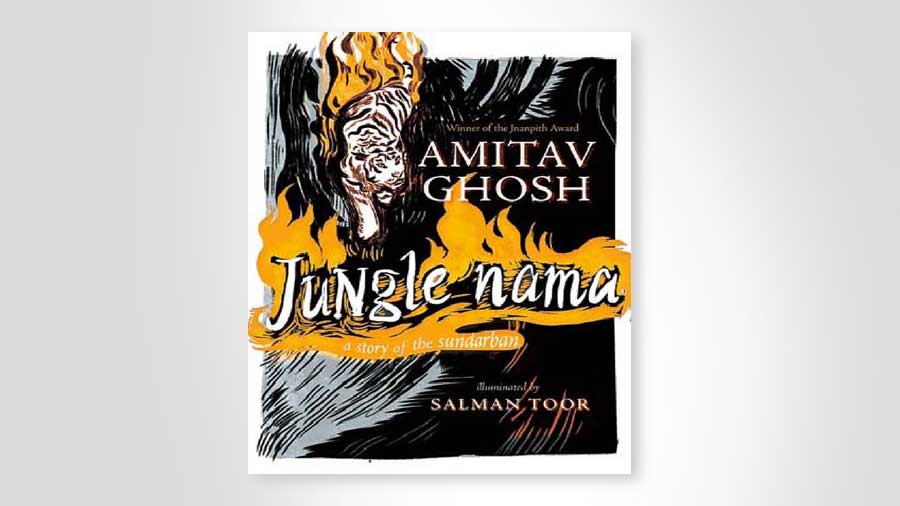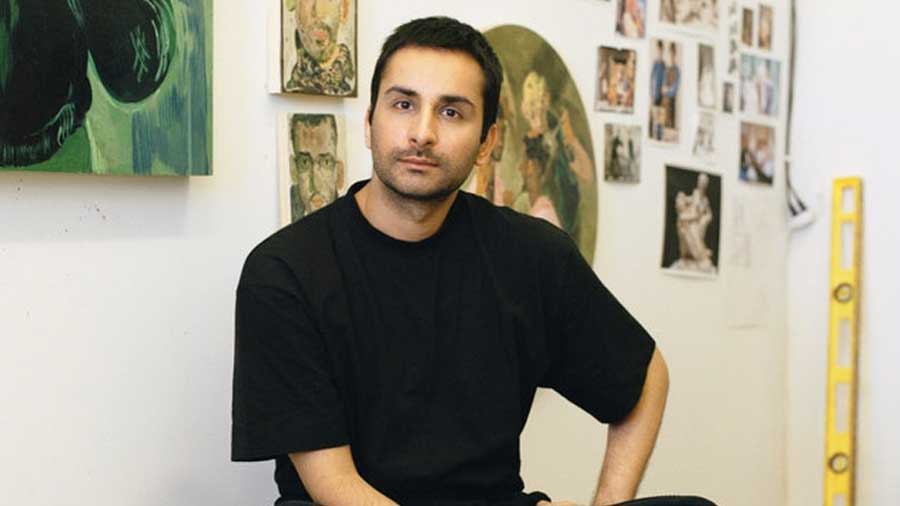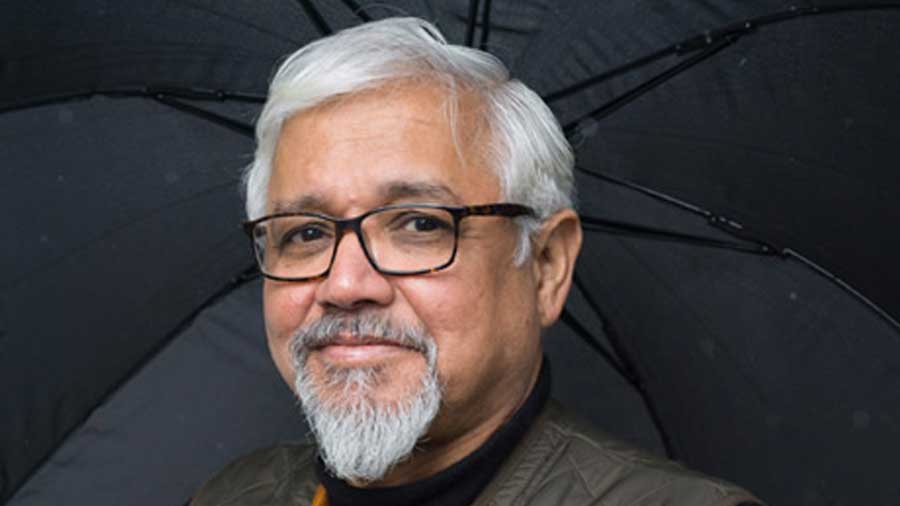This year, author Amitav Ghosh joined hands with singer Ali Sethi to create an audio narration of his book on Bon Bibi, the legend from the villages of Sundarbans — Jungle Nama. The original written in Bengali verse metre known as dwipodi poyar, it was told entirely in 24 syllable couplets. Narrating the tale of Dokkhin Rai, rich merchant Dhona, Dukhey and his mother, this is a classic that Ghosh recreated in his inimitable style. Bon Bibi has been a long association in Ghosh’s life appearing in his books such as The Hungry Tide and Gun Island. The goddess of the forest is done justice in Ali Sethi’s gorgeous voice as he designs the entire soundscape and narrates the tale. Published and available for listening on Audible, Amazon’s audiobook platform, we asked Ghosh to tell us about what went on behind the scenes. Excerpts…
Tell us about your association with Ali Sethi and the experience of the collaboration for Audible.
In 2003, Ali took a class with me at Harvard when I was doing a brief teaching stint there. He was a brilliant student, phenomenally intelligent and talented, and it was evident that he had a very bright future. He went on to publish a novel and some fine pieces of journalism, but since then his career has taken a new turn. He is a long-time student of legendary ghazal singers like Farida Khanum and Abida Parveen, and in the last few years, he has become a big star himself, performing to sold-out crowds in New York and elsewhere. On YouTube, Soundcloud etc. his videos have millions of views. Personally, I think he is an amazingly talented musician, with a deep knowledge of classical Hindustani music, and of contemporary Western music of all kinds, ranging from rap to Broadway music. So I was really glad when he agreed to do the audiobook of Jungle Nama. Because I have known him well, for a long time, and because we share many ideas and interests, the collaboration was a really smooth process and a great learning experience as well. We are now collaborating on a theatrical performance of Jungle Nama, and that is another exciting new direction for me.

The cover of the book Sourced by The Telegraph
How involved were you in the audiobook process?
Actually, it was Ali and his team who mainly dealt with the technicalities — I only watched from afar, as it were. But I was very glad to be a part of the process of creating the audiobook. There are audio versions of most of my books, but I have had almost nothing to do with the production process in the past. I think this tends to be the case with many authors. So for me, it was also a process of discovery. I do think that audiobooks open up many exciting possibilities for writers, as is evident from Jungle Nama.
What was the driving force behind you agreeing to the dramatised reading of the book?
I would have to say that I was myself the driving force behind the audiobook. When I wrote Jungle Nama I wanted it to exist in many different forms — as a printed text, with artwork (and I was fortunate that I was able to collaborate with another phenomenal talent — the artist Salman Toor), as an oral narrative, with music, as a performance, and so on. So I was very keen to work with someone who was both a musician and a good actor — and Ali was the perfect choice.

Ali Sethi Sourced by The Telegraph
What are your thoughts on readers increasingly moving towards audio platforms like Audible?
I think this is an exciting and entirely positive development. The book world has been, for too long, wholly fixated on texts and there is no reason why this should be so. In the past, books were usually read out aloud, either within a family or a community; in other words, they were experienced collectively. It was only from the 18th century onwards that books started to be read silently, and from that point on, the experience of reading became completely individualised.
Indeed there was even a kind of stigmatization of orality in relation to books. ‘Oral literature’ was regarded by Westerners as somehow backward and primitive; images, similarly, were regarded as being fit only for children’s books. These are some of the many bad legacies of a certain kind of modernity. But the Internet, and the digital revolution, completely overturned those ideas, by making it very easy to combine texts with images and sound. Young people nowadays read in a manner that is completely different from that of earlier generations. This is something I wholeheartedly celebrate, which is why the making of Jungle Nama in all its versions, was so exciting.
What’s next from your table?
I actually have a new book coming out from HarperCollins India early next year. The title is: The Living Mountain; A Fable of Our Times. It’s actually a short story, not a book, as such, but HCI are planning to publish it in a series of very short books.

Salman Toor Sourced by The Telegraph
Would you now consider writing a book specifically with the audio platform in mind?
I think The Living Mountain would make a very good audiobook. And I hope that it will also appear in other forms as well — as a graphic novel, for instance.
